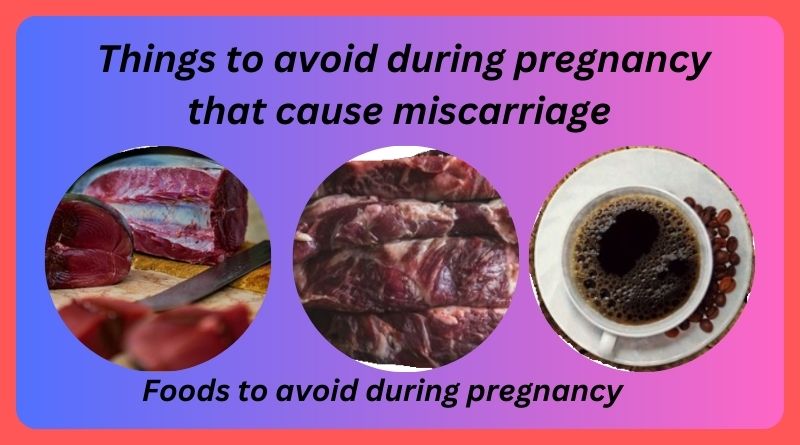Best time to take multivitamins: Does my baby essential vitamins and minerals for baby while breastfeeding? Breastfeeding is the optimal source of nutrition for your baby with its many benefits for both the mother and the newborn. For this reason, we always like to remember that the World Health Organization and the main medical societies recommend exclusive breastfeeding for the first six months of life, and in a complementary way up to 2 years of age, or for as long as the mother and baby mutually wish. But there are many occasions when a baby will need a supplement, which amounts to an extra dose.
What is giving the supplement to a baby?
The term supplementing a baby refers to the need to give an extra nutritional contribution to a newborn who is not able to make an adequate intake, either with an adequate production by the mother of breast milk or an inadequate production of breast milk, acting differently depending on the case.
When to supplement breastfeeding?
Most breastfed babies meet all their nutritional needs with breast milk. Ideally, avoid starting artificial milk supplementation if it is not justified since it is a strong predictor of early abandonment of breastfeeding. Given this, artificial milk supplements (when a baby needs supplementation ) should only be given to a breastfed baby when there is a medical indication. Clinical evidence demonstrates insufficient intake by the infant, such as excessive newborn weight loss.
There is a possibility that due to maternal decision, a mixed lactation is desired. A fully respected diet and to which your midwife will offer you the best proposal to protect your breastfeeding. Being a mixed lactation, what we must focus on is not to confuse the baby, nor confuse the body.
You can use well-known alternative methods to the bottle, such as the finger syringe, the cup, or the relaxation tube, and if you use a bottle, you need the most representative of your anatomy.
Therefore, our recommendation is to use a Happymami bottle, they are custom-designed bottles to prevent the confusion factor in your baby, and protect your breastfeeding.
If you think that your baby has signs that make you think that they need a supplement, you can find them below, before self-diagnosing and setting your guidelines, it is best to go to your reference professional, so you will have an objective assessment of your case and you will have the best solution.
When are supplements necessary in babies?
Situations in which it is necessary to supplement: In addition, here is a list of situations in which the newborn must be supplemented:
Situations that we need to complement breastfeeding:
*Newborns weighing less than 1500 g and/or preterm newborns with less than 32 weeks of gestation
*Newborn with hypoglycemia, if breastfeeding does not correct the hypoglycemia
*Weight loss of more than 10% of birth weight.
*No weight gain from the fifth day or no weight regain from birth to the tenth day
*Gain of less than 15-20 gr/day from the tenth day
*Mother-child separation due to maternal illness.
Situations that contraindicate breastfeeding and formula should be used:
*The baby suffers from galactosemia (does not tolerate lactose)
*Maple syrup urine disease
*Maternal HIV infection, human T-cell leukemia, active herpes simplex on the nipples.
*Drug abuse by the mother
How to give the essential vitamins and minerals for baby
The supplement to a newborn should be given after the breastfeeding attempt and only in a limited volume (generally prescribed by your pediatrician), managing to maintain your breastfeeding.
Any time the infant receives a supplement other than the mother’s freshly expressed milk, the mother’s milk should be expressed by hand or with a breast pump to signal her body to produce more milk. If opportunities to give the signal are missed, further problems of low breast milk production can arise.
To administer the complementary formula supplement, you can use alternative techniques, such as the use of a finger syringe, a cup, a spoon, or a bottle. Important if you use a bottle, do not hesitate to use a custom-designed Happymami bottle, so you will prevent your baby from the confusion factor, protecting your breastfeeding.
How much supplement does my baby need?
Below you will find the newborn supplementation volumes suggested by The Academy of Breastfeeding Medicine for healthy full-term nursing infants based on the baby’s age.
- *First 24 hours – 2 to 10 mLs/feeding
- *24 to 48 hours – 5 to 15 mLs/feeding
- *48 to 72 hours – 15 to 30 ml/feeding
- *72 to 96 hours – 30 to 60 mLs/feeding
How to supplement breast milk and formula?
As we have said, artificial milk supplements should only be administered to a breastfed infant when there is a justified medical indication that there is sufficient intake by the newborn.
The second point to take into account to offer you the best solution in your case is to know if your breast has enough capacity to extract all the milk your baby needs, or not. Insufficient infant intake, with sufficient maternal production. In this case, we have a baby who is not eating enough, but the mother does produce enough breast milk,
so we must encourage the supplementation of expressed breast milk, not necessary to supplement with artificial milk You can see all the information about expressing breast milk in this post ” Expressing breast milk at work ” Insufficient infant intake, with insufficient maternal production
This case is different from the previous one, now yes, we have a baby again who does not eat what he needs, but also, the production of breast milk is insufficient, so we need to supplement with formula milk. As we have seen, whenever supplementing with formula is being considered, the first step should be an evaluation by a breastfeeding expert who will help us identify and address the root cause of the underfeeding.
Do not confuse our body that must produce all the amount of milk that I am supplementing with formula, so we must ensure adequate production, improve the mother’s milk production (that is, the increase in frequency and complete emptying of the breast) to bring it closer to the demands of our baby.
So, when this incident is solved, we can resume exclusive breastfeeding. improve the mother’s milk production. Regarding the confusion factor for your baby, it is important to use methods that protect your breastfeeding, avoid generic bottles, and if you use a bottle, the best option is a custom-designed Happymami. You can also use the finger syringe, cup, or relocator method.
Read more: Tips for a healthy pregnancy and safe delivery
Why is it really important to give the body an extra dose of DHA?
Clinical studies carried out with babies and children show that DHA contributes to cognitive development. DHA also supports the little one’s immune system. The DHA if you eat a diet with fish 3 times a week would be more or less compensated, in the case of vegetarians (our case) we supplement with DHA that comes from microalgae, just as beneficial as that obtained from fish oil.
Although ALA intake is indeed similar in vegetarians and non-vegetarians, DHA supplements derived from microalgae are the best option to ensure a good supply of DHA in vegetarian and vegan diets. The American Dietetic Association has already ruled on this supplement and they have observed that it is well absorbed and positively influences the blood levels of DHA and also EPA through retroconversion. For Ale we have also opted for NanCare DHA, VITAMIN D&E from Nestle. But now you have a lot of options.
Read more: immediate constipation relief during pregnancy home remedies
Best supplement for baby
Vitamin D supplementation:
For me, vitamin D is one of those supplements that I approve of giving from birth. In my family, not only do our children take it, but we also consume it. Vitamin D plays a very important role in both adults and children, it is present in many foods and, in the sunlight that we receive daily, even so, it is generally necessary to take a supplement to complement the body’s needs.
Right now Alejandro takes it in drops from the NanCare brand from Nestlé and Nico, Dulce and we take it in capsules. This vitamin is very important for the correct growth and development of the bones, it also helps to promote the immune system of children.
DIGESTIVE SYSTEM: PROBIOTICS AND ORAL REHYDRATION SOLUTIONS (ORS)
62% of babies are treated with antibiotics, which causes dysbiosis or alteration in their intestinal microbiota, causing episodes of diarrhea. By administering probiotics we favor a balanced intestinal microbiota.
Also in these cases, it may be interesting to supplement with HMOs (designed oligosaccharides identical to those present and more abundant in breast milk), to strengthen the immune system.
Oral rehydration solutions (ORS) provide electrolytes, carbohydrates, and reduced osmolarity that help avoid complications, number of medical visits, and hospitalizations in children with diarrhea and/or vomiting.
CONSTIPATION: FOS / GOS
Almost 1/3 of pediatric consultations linked to gastrointestinal disorders are due to constipation. FOS and GOS increase the volume of stool and improve its consistency in 3 ways:
*Increasing the water content of the stool
*Promoting a healthy gut microbiota
*Improving intestinal transit time
Read more: The best prenatal vitamins over the counter
PREVENTION AND HEALTH: VITAMIN D3, DHA/EPA
Vitamin D3: Vitamin D is a key nutrient for healthy bone development and normal immune system function.
Numerous authorities, such as the AEP, recommend Vitamin D supplementation in infants and children. Breast milk is naturally poor in Vitamin D. Furthermore, sun exposure is often restricted at an early age. Vitamin D deficiency is highly prevalent even in countries with high sun exposure.
DHA is a special fatty acid found in breast milk that plays a key role in brain and visual development. It is often difficult for infants and children to meet their DHA needs through diet.
The daily intake of DHA should be controlled, particularly between 12 and 36 months of age, where the diet may still be a little varied and balanced, as children are very selective and many foods are wasted. In addition, the consumption of oily fish, the main source of DHA, must be controlled by the EFSA advice regarding large fish, as it is a source of methylmercury.
B12 vitamin
I consider this vitamin a supplement of vital importance for vegetarians, vegans, or people who eat meat. Vitamin b12 is an essential vitamin for the normal functioning of the brain, and nervous system and for the formation of various proteins. It also helps the absorption of carbohydrates and fats.
In this section, I would like to thank Elena for the great information that she gave me about the importance of supplementing any type of diet with this important and necessary vitamin for the development of the little ones.
Read more: Things to avoid during pregnancy that cause miscarriage
B12 in the whole population?
The answer is YES, vitamin B12 deficiency occurs in both vegan and vegetarian populations as well as in people who habitually consume meat: people with intestinal pathologies, such as Crohn’s disease, with absorption problems, or who take certain medications that influence their absorption (like antacids).
Vitamin b12 deficiency is very serious and often its symptoms can be camouflaged.
Symptoms: Numbness and tingling in the arms and more commonly the legs, difficulty walking, memory loss, disorientation, and dementia with or without mood swings… Hence the importance of supplementing with this vitamin We drink from the Veggunn brand and honestly, we are very happy Alejandro takes it without any problem. Something important to me since he doesn’t like to take anything, not even ibuprofen, I mean, he’s sick.
Lactobacillus:
Unfortunately, due to poor nutrition, more and more babies, children, and adults have a deficiency in the intestinal flora, which is why more and more brands offer us supplements of this type. In my opinion, if we are healthy and have a well-balanced diet, we can leave these types of supplements aside.
However, if we get sick and have to take antibiotics, it would be a good option to supplement with this supplement since, due to the intake of antibiotics, our flora will have an imbalance. In cases of children with immunodeficiency, I personally YES that I would recommend this supplement. Right now in the market, we have many, but the ideal is always to consult with our trusted pediatrician.
Read more: best foods to eat while pregnant
Summary of the essential vitamins and minerals for baby
Breast milk is the best meal for a newborn, whether or not untimely or full-term.
It is composed of macronutrients as well as proteins, lipids, carbohydrates, and micronutrients such as minerals and vitamins. It protects against infections and diseases typical of childhood, as well as supplying the infant with the necessary energy by providing nutrients and reducing the chances of being overweight or obese and therefore the risk of suffering from diabetes in the future.
*A supplement is an “extra” contribution that a breastfeeding newborn may need. It can be expressed, donated, or formula milk (artificial) in most cases, avoiding the use of nipples and formula milk. It can be done through several methods such as by probe (reactor), syringe-finger, syringe-probe, container-spoon, or cup-glass.
Supplementation must be prescribed by a pediatrician although, on certain occasions, they are classified by indications of the mother and the baby.
*The most essential issue is to pick out the approach that exceptionally fits every situation.
For this, health personnel must know the different existing methods to later be able to provide quality information and help mothers and families choose and use the type that best suits their needs.
*Promote exclusive breastfeeding until at least the sixth month of life and describe the different types of supplementation with breast milk that exist if necessary, avoiding the use of teats and formula milk.
Recommended product
1) Complete Prenatal Multivitamin for Mom & Baby
4) Supplement for Breastfeeding Women…
YouTube


